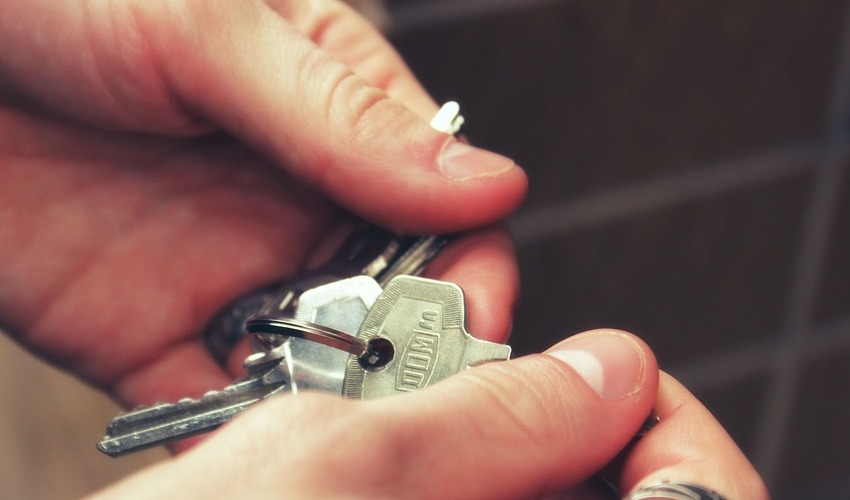

A broke dad, who claimed that being officially declared ‘bankrupt’ after amassing debts of over £100,000 had fuelled stress, family problems and job search difficulties, has failed to get the order against him thrown out.
The Royal Court said Mr C* had no excuse for failing to find a job and that lifting the previous imposed bankruptcy – ‘en désastre' – judgment would not be fair to the people he owed money.
Following the judgment that declared Mr C bankrupt in April 2017, the Viscount seized all of his assets: the home he owned with his former wife, household items, bicycles and cycling equipment, and a stock of sunglasses he had previously sold through an online business.
They were then sold for a total of £46,851, which went towards the £118,000 debt Mr C owed in part to his former wife (£40,623), his parents (£22,957) and his former advocates, Messrs Benest and Syvret (£17,360).
The Court heard that no other contributions had been made to the bankruptcy in the two years since the judgment.

Pictured: Mr C owed over £118,000 to his creditors.
The Viscount claimed Mr C had not worked during that period, and only received income support. Mr C said he had in fact worked part-time for six months in 2018, earning £800 and had not been asked by the Viscount to pay money into the bankruptcy.
Advocate Michael Haines asked the Court to lift the bankruptcy arguing that declaring a person en Désastre was not a punitive order and that lifting it would be beneficial in the case of his client.
He told Court that Mr C had not been “sitting back taking no action with a view to finding employment” and had been meeting regularly with the Social Security Department to find a new job.
He however added that Mr C could not find work in financial services, where he previously worked, as most business would not hire him as a result of the judgment. Advocate Haines said that in the circumstances, there was “little satisfactorily remunerated work that he is able to obtain".

Pictured: Mr C said he could not find a job in the financial services as a result of the judgment.
Advocate Haines also said the proceedings were causing Mr C “long and significant bouts of ill health”, and had led to him being signed off sick between June and October this year.
In addition, the lawyer said the proceedings had “badly affected” Mr C’s family life. Advocate Haines said that after moving out of the matrimonial home, Mr C had to move back in with his parents in order to be able to see his children.
Advocate Haines said this was not an “ideal arrangement” describing the living conditions as “relatively cramped,” adding that it made reintegration with Mr C’s children “difficult if not impossible".
The lawyer said Mr C feels there is “little chance” of him being able to provide a home for himself and his children, until the end of the Désastre, which he argued is preventing Mr C from feeling “positive about the future".

Pictured: Mr C was signed off work from June to October this year as a result of stress caused by the bankruptcy judgment.
Having seen most bankrupts find employment despite their judgment, the Viscount, Advocate Elaine Millar, told Court she could not understand why Mr C had been unable to find employment.
She pointed out that Mr C’s right to family life had not been affected by the judgment as he was still able to see his children.
The Viscount also submitted that, in her experience, bankruptcy was not at all “unusual” but in fact “very likely to hurt the health of the bankrupt". She however argued it did not prevent a bankrupt person from obtaining employment.
The Bailiff Sir William Bailhache, and Jurats Jerry Ramsden and Steven Austin-Vautier eventually rejected the application. In their judgment, they noted that discharging the Désastre order would be disadvantageous for Mr C’s creditors, whose objections they said were reasonable.
The Court accepted that the désastre order was not meant to be a punishment, as suggested by Advocate Haines, but added that a debtor should pay his debts, or his creditors might be driven to bankruptcy themselves.

Pictured: The Court heard Mr C had to move in back with his parents as a result of the judgment.
“It is not a question of punishment that a Désastre continues – rather it is a question of equity and fairness as between creditors and debtor where all the relevant circumstances need to be taken into account,” the Court wrote.
They also said they had not been “impressed” by Mr C’s failure to find a job, adding they saw no reason why he shouldn’t have been able to. They agreed with the Viscount’s view that “most debtors suffer stress in a bankruptcy” but said there was “no excuse for [Mr C] in failing to find employment”.
“The island has full employment at present, and employers are looking for employees all the time,” the Court wrote. “It may well be that the debtor has not obtained employment which he regards as suitable for his talents, but that is not the issue.”
The Court added that if Mr C had worked in the two years since the judgment, money would have been paid into the bankruptcy, which might have prompted the Court to reach a different conclusion.
Comments
Comments on this story express the views of the commentator only, not Bailiwick Publishing. We are unable to guarantee the accuracy of any of those comments.